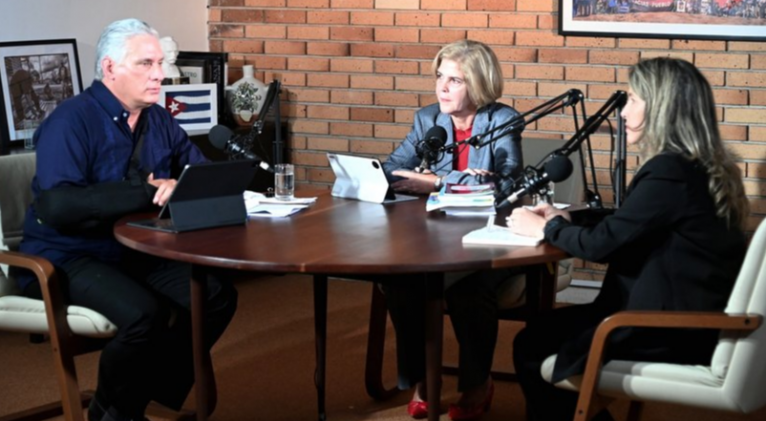Díaz-Canel: School year in Cuba expresses values of the Revolution
especiales

The President of Cuba, Miguel Díaz-Canel, said today that the 2024-2025 school year that began a week ago on the island expresses the vocation for social justice and the efforts of socialist construction of the Revolution, despite external aggressions.
In a podcast broadcast through the Youtube channel of the Presidency, the Cuban president underlined the inclusive nature of the process, despite the significant effects that the ruthless policy of blockade and economic suffocation of the United States has on the country and the educational sector.
The Cuban president pointed out that these attacks cause the deterioration of educational infrastructures, to which is added a strong campaign of media intoxication and discredit with the purpose of undermining the efforts that are made to guarantee the quality of education.
The 2024-2025 school year is not only transcendent because it is imposed on enormous material shortages, it is also a challenging course for everything that we are proposing to raise the quality of our education, she pointed out.
In the space, the tenth that the president carries out to address issues of interest to the population, authorities of the educational sector discussed the efforts and priorities of the course, after the return to the classrooms of more than one million 600 thousand children and adolescents.
The head of the Ministry of Education Naima Trujillo explained that despite the material difficulties, strategies will begin to be generalized to promote the III Improvement of Education in progress, aimed at raising the quality and effectiveness of the training processes.
At Díaz-Canel's request, the official also addressed doubts and concerns of the population, such as the rescue in schools of the link between study and work or the contribution in social tasks, the offer of continuity of study for students who still lack it, the sale of the school uniform and the distribution of notebooks and textbooks.
For her part, the general director of the Central Institute of Pedagogical Sciences, Silvia Navarro, explained that the III Improvement is based on theoretical studies, from experimentation and a research system that has allowed to identify its need, and the presence of researchers and teachers who participated in the previous processes has been a strength.
At the end of the episode, Díaz-Canel shared some guiding ideas, and emphasized the relevance of providing a comprehensive education that promotes knowledge, culture, decency.
In this sense, she urged to encourage the student to learn, demonstrate what he can give and contribute, avoiding as far as possible attitudes and behaviors that affect these potentialities.
As a society, he said, we must recover lost habits of courtesy, which cause discomfort in everyday life. Nothing is more alien to the Revolution than bad manners, he pointed out.














Add new comment